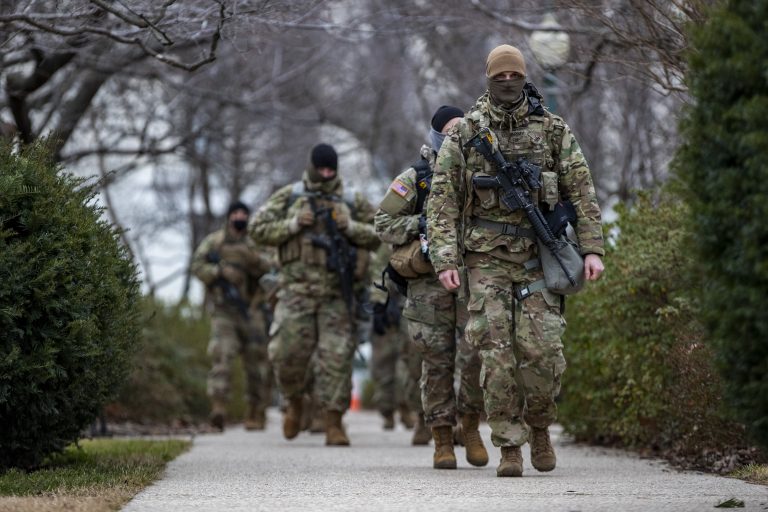U.S. Defense Secretary Lloyd Austin has approved a request by U.S. Capitol Police to maintain around 2,300 National Guard troops until May 23. At present, there are 5,100 guards stationed at the Capitol. The National Guard troops were only scheduled to remain until March 12.
One senior defense official told CNN that the continued deployment was not due to any specific threat but an awareness of a persistently elevated threat level at the Capitol. Plus, the Capitol Police needed extra time to fill their staffing requirements.
National Guard Bureau Chief Dan Hokanson had disapproved of keeping troop members beyond the scheduled exit date, arguing that they already lacked in numbers due to wildfires, civil disturbances, and the pandemic. However, his concern was overruled by Austin.
“Efforts to date have not secured enough volunteers among supporting states to meet the USCP request of 2,280 soldiers, nor Option B of 1000 soldiers… I am concerned that the continued indefinite nature of this requirement may also impede our ability to man future missions as both adjutants general and guardsmen alike may be skeptical about committing to future endeavors,” according to a memo by Hokanson.

Pentagon press secretary John Kirby said that the Defense Department would fund the National Guard’s mission until May 23. He stressed that the Capitol Police has a legitimate need, so they wanted the National Guard ready on location. Hokanson’s memo had suggested using civilian law enforcement for the Capitol’s needs.
Success
You are now signed up for our newsletter
Success
Check your email to complete sign up
Only 500 members of the National Guard have volunteered to extend their deployment. The Pentagon will be asking state governors to volunteer complete units to service rather than individuals. The department is also considering issuing involuntary activation orders to ensure that the Capitol troops remain in place.
Meanwhile, two members from the House Armed Services Committee, Democrat Adam Smith and Republican Mike Rogers, have issued a joint statement asking for a troop reduction at the Capitol. They warned that the extension would add to the financial burden and negatively affect the “overall readiness” of the National Guard.
Though they acknowledged the need to maintain a few troops to provide support, the two lawmakers affirmed that the present high state of security is not at all warranted.
“We are deeply troubled by the current level of security around the United States Capitol… More than two months after the January 6 attack, the seat of our nation’s democracy remains heavily protected by guardsmen and surrounded by a perimeter fence…”
“We appreciate our guardsmen answering the call to protect the Capitol, but it’s time for us to review what level of security is required, so they can return home to their families and communities,” the two members said in a statement.
Extremism in the military
Last month, Austin also ordered U.S. military leaders to talk to their troops about extremism in the units. The instruction came after it had been revealed that some current and former military members had taken part in the January 6 riots. Kirby said that even though extremism has been a problem in the military, the Capitol attack was a “wake-up call.”
However, Kirby admitted that there is a considerable challenge in defining extremism. Members of the military are allowed to hold whatever political beliefs they choose. But they are held to a far higher standard than the common public. Authorities will be developing training materials on the issue and sending them to the troops to discuss the matter.
Follow us on Twitter or subscribe to our weekly email
















